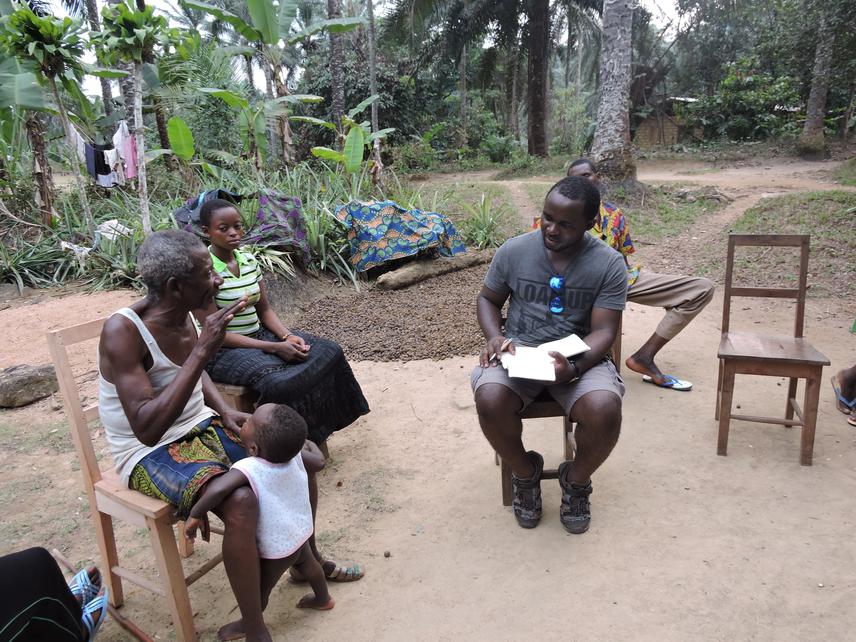Mbunya Francis Nkemnyi
Other projects
22 Nov 2012
The Environment-Development Nexus and Great Apes Conservation in Western Cameroon: The Case of the Proposed Tofala Hill Wildlife Sanctuary
23 Jul 2014
Enabling Sustainable Great Apes Conservation in the Tofala Hill Wildlife Sanctuary (THWS)
This project aim at contributing to research output and expertise needed for sustainable Cross River gorilla conservation policies in the Cameroon Landscape.

Mbunya Francis Nkemnyi interviewing a community leader in Banti village, Cameroon.
The Cross River gorilla (CRG) is the most threatened of the African apes. Less than 300 survive in the wild in approximately nine sites spread across an area of 12000km2. Poaching, habitat loss and fragmentation remain major threats to the survival of the CRG conservation. The Regional Action Plan for the Conservation of the CRG, 2014-2019 (Dunn et al., 2014) emphasise on monitoring the most important threats over the next five years. In this line, this project is geared toward enhancing policies and expertise to fight poaching. Understanding the trends in the changing threats in poaching across the CRG landscape will provide key information for guiding collective activities. Poaching is a major challenge in the tropics because households most often rely on it for income. Despite local government policies to fight against poaching, local people are constantly deriving new strategies to continue the practice and to trade bushmeat. The inability to track emerging poaching strategy is as a result of possible policy gaps, which have been linked to the lack of local expertise and institutional capacity.
There is an urgent need to develop opportunities that strengthen policy implementation against hunting given that the dynamic and complex nature of the indicators of poaching call for constant research and building of capacity to meet up with the new trend in the field. This project will specifically contribute to improve local expertise in the fight against poaching in the Tofala Hill Wildlife Complex and the Takamada National Park, to ensure the availability of information to sustain effective wildlife policy implementation in the project area and beyond and to contribute to scientific knowledge and local researchers visibility through collaborative peer reviewed publications.
In accomplishing the above objective, the project will train 4 recent graduates as research assistants for a period of six months on desktop research, data collection and data reporting. The adoptions of the three phase research approach used in this project will provide the trainees with a complete professional package that will enable them effectively engage in policy action research. At the end of this project, we expect to have groomed 4 young professionals that will contribute to institutional capacity in the field or wildlife conservation and at the same time we will also obtain detailed empirical knowledge that contributes to the understanding and addressing of wildlife management and poaching/bushmeat challenges in the project areas and beyond.